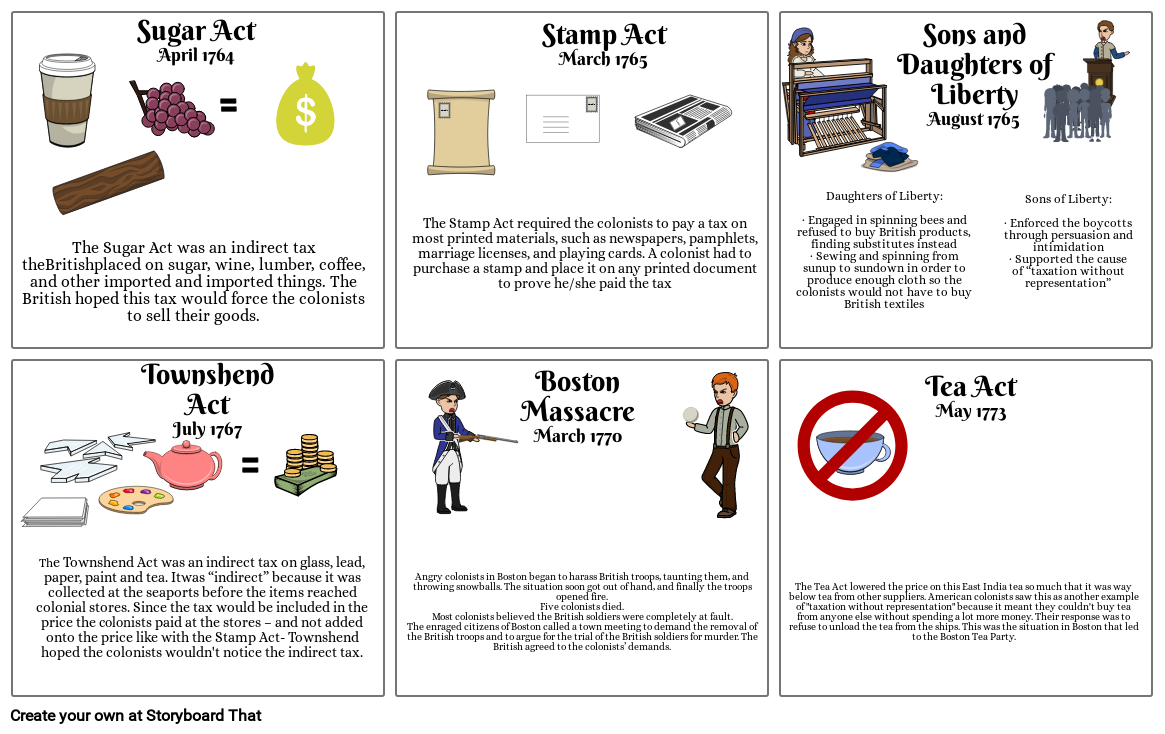Taxes imposed on Colonist

טקסט Storyboard
- The Sugar Act was an indirect tax theBritishplaced on sugar, wine, lumber, coffee, and other imported and imported things. The British hoped this tax would force the colonists to sell their goods.
- Sugar ActApril 1764
- The Stamp Act required the colonists to pay a tax on most printed materials, such as newspapers, pamphlets, marriage licenses, and playing cards. A colonist had to purchase a stamp and place it on any printed document to prove he/she paid the tax
- TaxPaid
- Stamp ActMarch 1765
- Tax Paid
- Tax Paid
- Daughters of Liberty:· Engaged in spinning bees and refused to buy British products, finding substitutes instead· Sewing and spinning from sunup to sundown in order to produce enough cloth so the colonists would not have to buy British textiles
- Sons and Daughters of LibertyAugust 1765
- Sons of Liberty:· Enforced the boycotts through persuasion and intimidation· Supported the cause of “taxation without representation”
- The Townshend Act was an indirect tax on glass, lead, paper, paint and tea. Itwas “indirect” because it was collected at the seaports before the items reached colonial stores. Since the tax would be included in the price the colonists paid at the stores – and not added onto the price like with the Stamp Act- Townshend hoped the colonists wouldn't notice the indirect tax.
- Townshend ActJuly 1767
- Angry colonists in Boston began to harass British troops, taunting them, and throwing snowballs. The situation soon got out of hand, and finally the troops opened fire. Five colonists died.Most colonists believed the British soldiers were completely at fault. The enraged citizens of Boston called a town meeting to demand the removal of the British troops and to argue for the trial of the British soldiers for murder. The British agreed to the colonists’ demands.
- Boston MassacreMarch 1770
- The Tea Act lowered the price on this East India tea so much that it was way below tea from other suppliers. American colonists saw this as another example of taxation without representation because it meant they couldn't buy tea from anyone else without spending a lot more money. Their response was to refuse to unload the tea from the ships. This was the situation in Boston that led to the Boston Tea Party.
- Tea ActMay 1773
נוצרו מעל 30 מיליון לוחות סיפור

